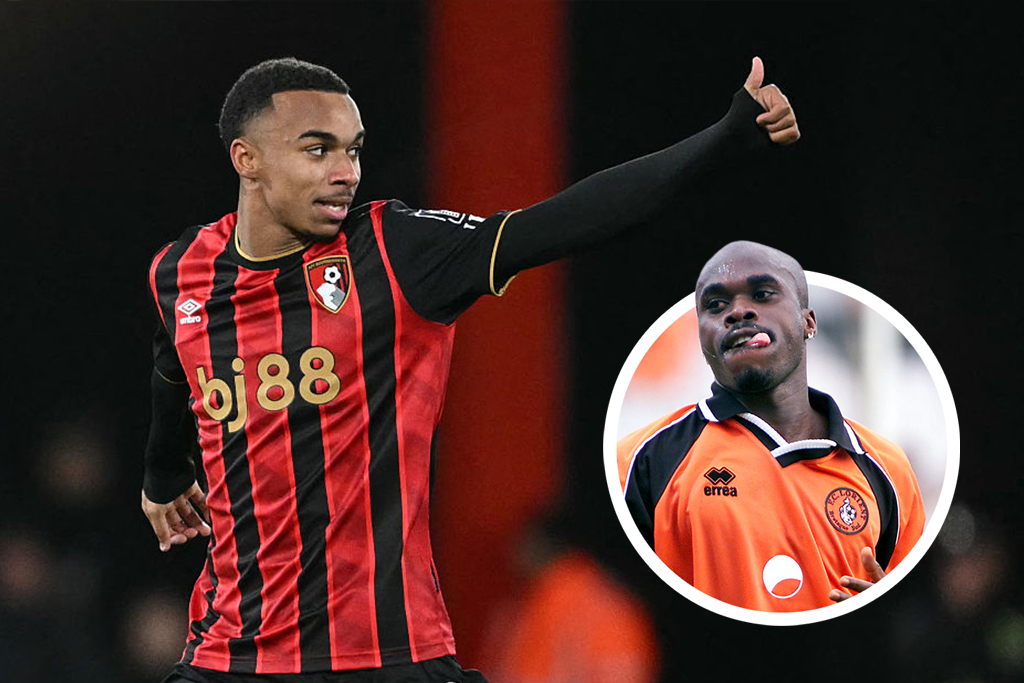10 signings who were supposed to deliver a Champions League title... but didn't
These transfers were meant to be the start of European dominance - it didn't quite work out that way, though...
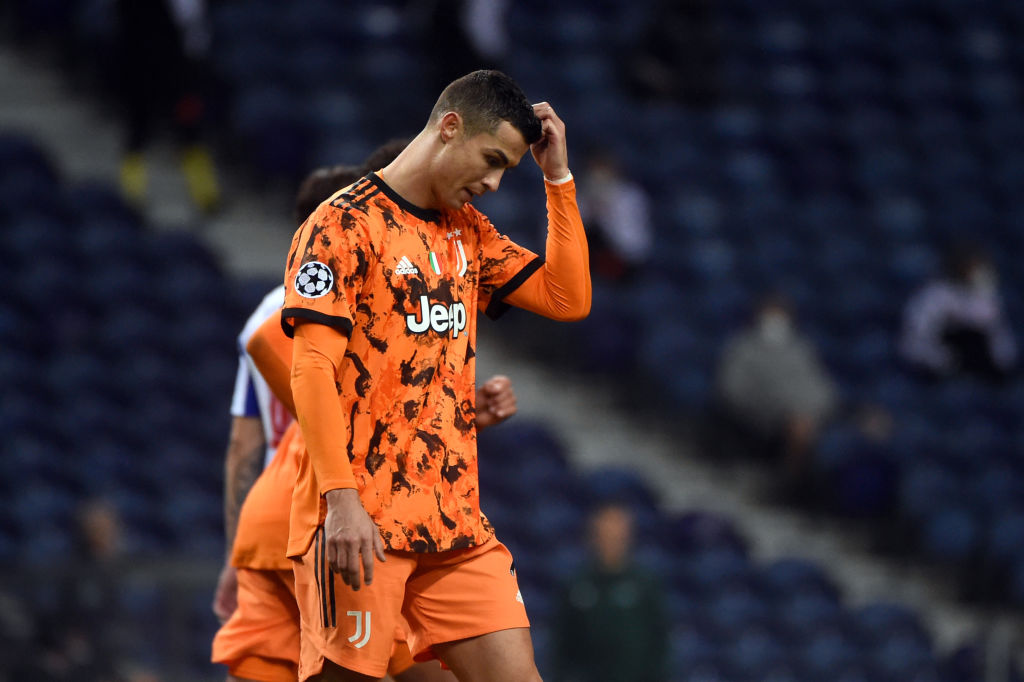
The best features, fun and footballing quizzes, straight to your inbox every week.
You are now subscribed
Your newsletter sign-up was successful
Want to add more newsletters?

Five times a week
FourFourTwo Daily
Fantastic football content straight to your inbox! From the latest transfer news, quizzes, videos, features and interviews with the biggest names in the game, plus lots more.

Once a week
...And it’s LIVE!
Sign up to our FREE live football newsletter, tracking all of the biggest games available to watch on the device of your choice. Never miss a kick-off!
Join the club
Get full access to premium articles, exclusive features and a growing list of member rewards.
Years ago, Paris Saint-Germain claimed that they would never need to sign Lionel Messi or Cristiano Ronaldo. They would find the new Messi or Ronaldo. And now look.
Not winning trophies can drive a football club a little mad. Just look at Arsenal Fan TV. The quest for silverware can take some dramatic turns and sometimes, clubs think huge to try and deliver titles.
But when it comes to European dominance, you've got to think outside of the box. This isn't a 38-game marathon, it's a knockout kind of game - and anything can happen. PSG have signed the biggest and the best stars in Europe for years and still found that out the hard way: perhaps signing someone as quality in the big-game moments, as calm under pressure and as used to winning as Lionel Messi can change all that.
Or perhaps it can't. It didn't work in these cases...
1. Evaristo (Real Madrid)
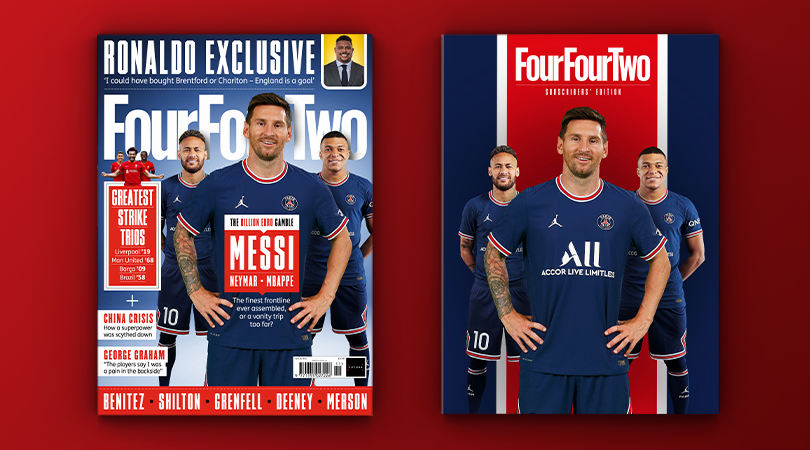
The European Cup belonged to Real Madrid in its infancy, the first five editions heading to the Spanish capital as the club's original Galacticos reigned supreme. Alfredo Di Stefano, Paco Gento, Raymond Kopa and Ferenc Puskas were superstars of the era - but they wouldn't last forever.
With Benfica starting a dynasty of their own in the early 60s, Real approached Barcelona's Evaristo in 1962, asking the Brazilian to naturalise as a Spanish citizen and giving him a better shot of European glory - Barca had beaten by Benfica in the 1961 final, but Real were still the dominant side in Spain.
The forward obliged, becoming the Luis Figo of his day - but unlike his counterpart 38 years later, Evaristo would never live up to the stellar reputation he'd forged in Catalonia. A serious knee injury restricted him to 19 games in a Los Blancos jersey.
The best features, fun and footballing quizzes, straight to your inbox every week.
He'd left the club by the time Real triumphed again in 1966, with a remodelled frontline of Amancio Amaro and Ramon Grosso.
2. Michael Reiziger & Edgar Davids (AC Milan)
It was 1996. The Fabio Capello era was over, with the Italian departing to Real Madrid. Oscar Tabarez was at the helm at AC Milan now and the club were looking to make a statement that the good times hadn't quite ended just yet.
After all, Milan were European champions as recently as 1995 and had lost the final in 1996 to Ajax. The plan to recapture the flag? Sign two of the players who'd beaten them in the final.
Edgar Davids and Michael Reiziger arrived with European pedigree and added considerable bite behind the likes of George Weah and Roberto Baggio. But it didn't quite have the desired effect, as Davids couldn't break into the first team and Reiziger struggled with injury.
Italian champions and last season's second-best side in Europe, Milan finished 11th, were dumped out of the Champions League group stage and drafted in Arrigo Sacchi to come and save the club before Christmas. Even Franco Baresi retired, seemingly out of depression at what was crumbling around him. Davids and Reiziger were both gone within 18 months.
3. Juan Sebastian Veron (Manchester United)
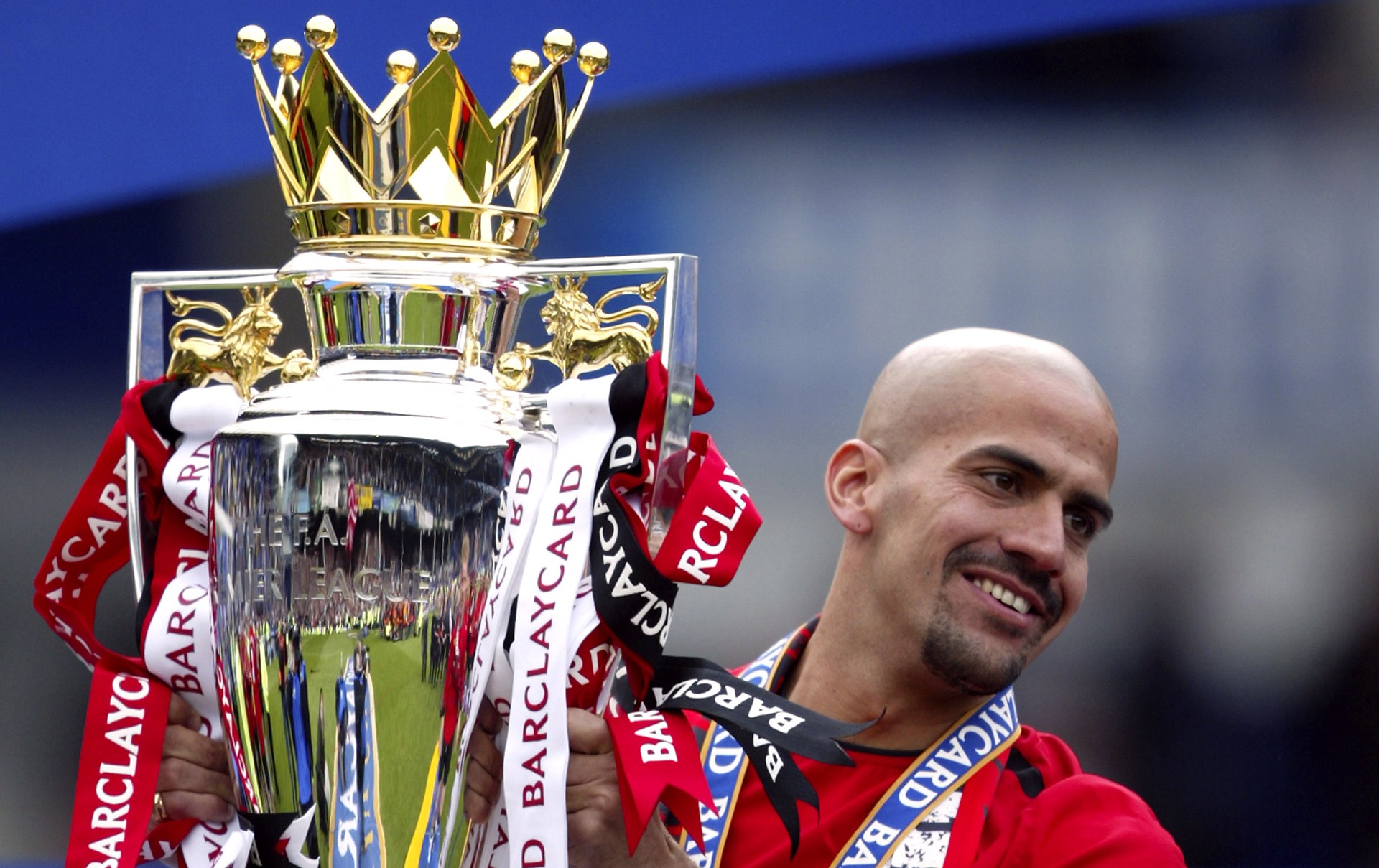
Sir Alex Ferguson made no secret of his dream to recapture the Champions League at Hampden Park and swan off into the sunset. Juan Sebastian Veron was supposed to be the cornerstone to make it happen.
And though Veron was lambasted for poor domestic form, the big-money Argentinian put in some superb Champions League displays after arriving at Manchester United in 2001. With Ferguson flirting with a 4-5-1, the slower tempo in Europe suited the midfielder, who could dictate as he wished.
Bayer Leverkusen ended Fergie's retirement plans, dumping United out in the semi-finals, weirdly, on away goals with two draws. Veron shone the following season in the group stages, too, though a Ronaldo-aided Real Madrid were just too strong for United. Ferguson cashed in on the midfielder in 2004 when Chelsea came knocking - though he'd shown him plenty of patience.
"On you go. I’m not f***ing talking to you. He’s a f***ing great player. Yous are f***ing idiots," he swiped at journalists in 2002 who looked to lambast the former Lazio star. He may well have been - but he couldn't deliver the holy grail to Old Trafford.
4. Ronaldo (Real Madrid)
The Galactico project at Real Madrid in the noughties was one of excess and expense: a glamourous soiree of the biggest names in the game that at times, had more to do with marketing than it possibly could to do with football.
Take David Beckham, for example, who it couldn't possibly be argued was signed due to a need for a right-midfielder. Ronaldo joining after the 2002 World Cup was different though: he was a global powerhouse but one that would elevate an already incredible set of stars.
He was sidelined until October with injury but by the time the knockouts rolled around, Ronaldo's remit was to blow away the big boys - and he did so in style with a hat-trick of away goals to sink Manchester United in 2003. But Ronaldo would never win the Champions League with Los Blancos... or anyone, for that matter.
Juventus knocked them out twice in his four years with the club, Arsenal beat them in 2006 and in the other tie, Fernando Morientes, on loan from Real Madrid, scored an all-important away goal to dump his parent club out the competition. Morientes was only on loan to get game-time because Los Blancos were stocked with Raul and Ronaldo up front.
5. Cesc Fabregas (Arsenal)
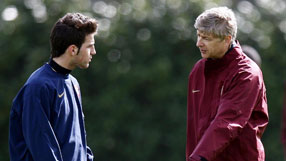
Some point to Patrick Vieira's exit from Arsenal as the moment that Arsene Wenger's tenure took a turn for the worst. He wouldn't win the Premier League again - how could he not replace his best midfielder?
There was method in the madness. Cesc Fabregas wasn't a big-money buy designed to deliver the one prize that Arsenal hadn't won - but the diminutive Spaniard's abilities on the ball convinced Wenger that he should remodel his entire team around the midfielder. He moved to a 4-5-1 in Europe - and while the Premier League was never truly within Arsenal's grasp from then onwards, Wenger's teams improved greatly in the Champions League.
Arsenal had always looked incapable of controlling tempo on the continent but Fabregas did it fantastically in 2005/06, as the Gunners reached the final in Paris. Vieira was played off the park when Arsenal knocked Juventus out en route and in subsequent years, the Gunners would give better showings in the knockouts than they would in big Premier League games.
Back-to-back exits at the hands of Barcelona saw Fabregas return back to Catalonia himself. Unfortunately for him, he arrived after their fourth European title and left before their fifth.
6. Andriy Shevchenko (Chelsea)
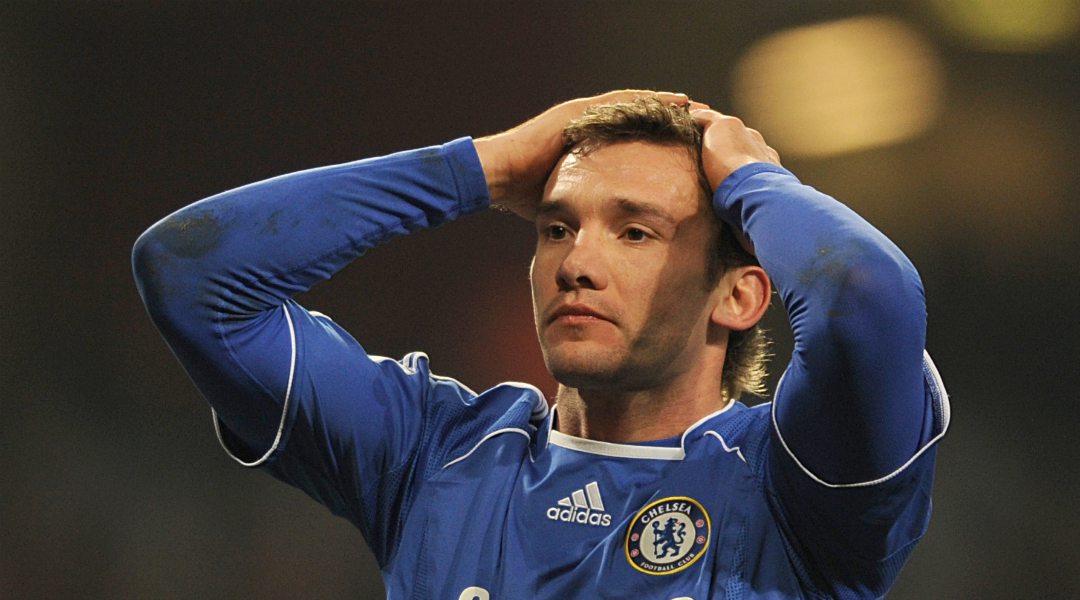
"The Champions League has to be a realistic target for next season, but it is not just about the Champions League," said Andrey Shevchenko upon unpacking his suitcase in west London. "Chelsea is going for their third Premier League as well and I like the club's mentality of wanting to win every game they play."
So why did Chelsea sign Sheva, a striker that manager Jose Mourinho clearly didn't want and had no intention to use? Because Roman Abramovich wanted a Russian-speaking superstar in the side? Perhaps. Because it boosted Chelsea's reputation in Russia and Ukraine? Maybe. Because they wanted to conquer Europe? Oh, definitely.
Even in his Dynamo Kiev days, Shevchenko was a Champions League specialist, before winning the trophy twice with AC Milan. At 29, he was in his prime and having him and Didier Drogba up front together surely couldn't fail. Except it could and he wasn't very good.
Shevchenko lasted three years at Stamford Bridge before going first back to Milan and then back to Dynamo Kiev, giving his career a neat symmetry - but unfortunately not delivering anything close to his Milan form for the Blues.
7. Zlatan Ibrahimovic (Barcelona)
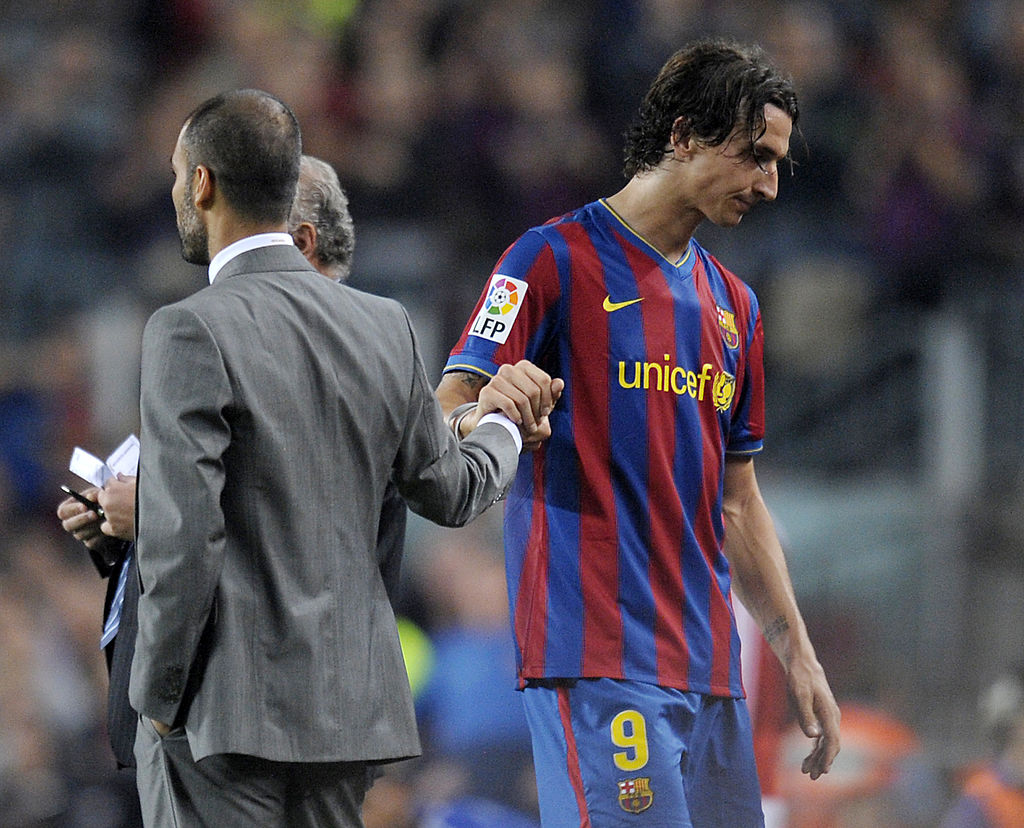
In hindsight, it's strange to know what possessed Pep Guardiola to buy a footballer who seemed hard-wired to question every facet of his ideology - especially in a virtual swap deal with Samuel Eto'o.
"The Barca players were like schoolboys, following the coach blindly, whereas I was used to asking 'why?'" Zlatan Ibrahimovic said of his time at Barcelona. "I like guys who run red lights, not pedantic and strict rules."
Pep had revolutionised the game in his first season and delivered three trophies but there were still elements that he wanted to improve on. Ibrahimovic was just as deft as Eto'o was but as strong as an ox, offered height, pace and incisive movement. He was brought in to bully - and he was tailor-made for nights like the 2009 semi-final struggle against Chelsea, where Barca had to rely on some suspect officiating.
Headlines often write themselves, though. Samuel Eto'o and Inter Milan knocked out Barcelona en route to a treble of their own. Ibra was sent on loan the following season as David Villa came in to follow those pedantic and strict rules. Barca stormed to another Champions League - and Pep has had a strong distrust of traditional no.9s ever since.
8. Neymar (PSG)
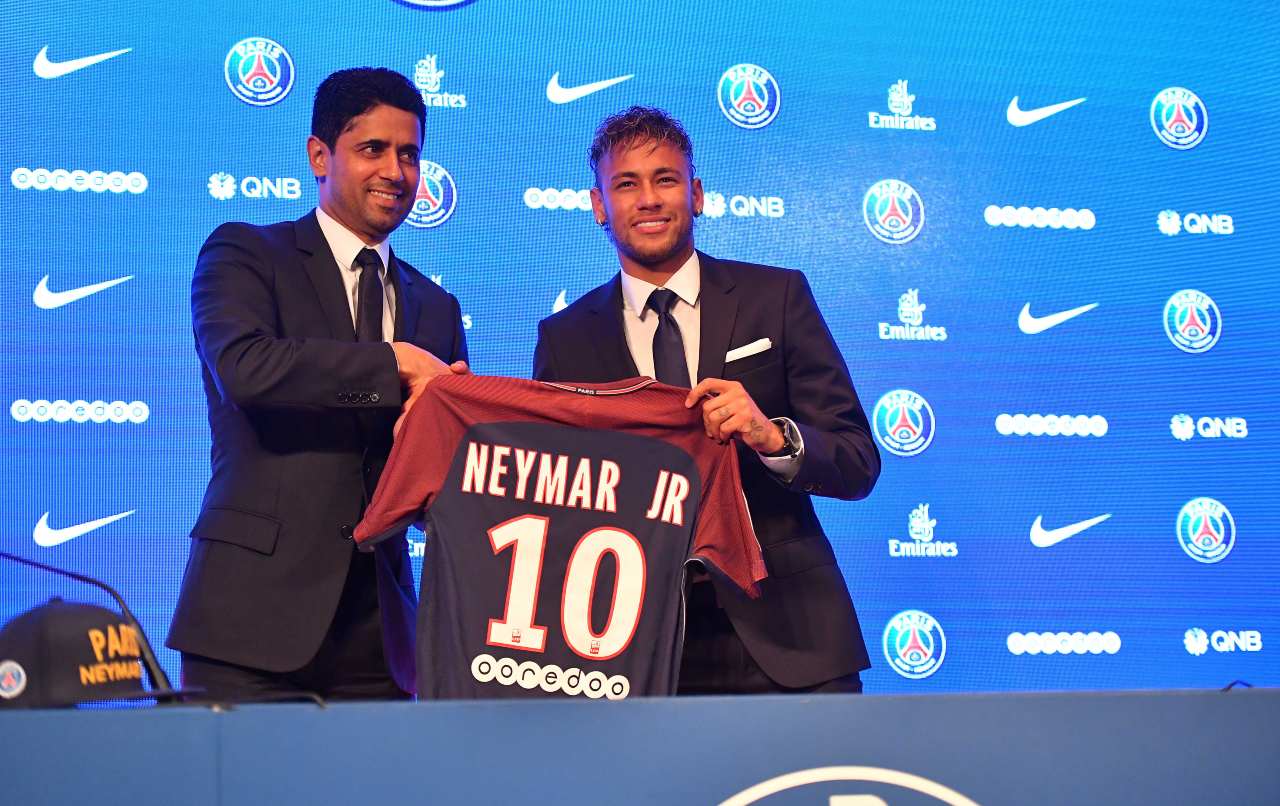
Neymar was signed the summer after Paris Saint-Germain lost the league title to Monaco. But Neymar was not signed to win Paris Saint-Germain the title back.
Neymar was made the most expensive footballer of all-time by an absolute country mile to elevate the club from plucky pretenders to the elite of Europe. And almost overnight, he and fellow summer signing Kylian Mbappe made Les Parisiens favourites for the Champions League - despite the previous season's embarrassing remontada away to Barcelona.
The Brazilian showpony's time in France has been marred by injuries and absences during key dates in the Champions League calendar and spectacular team meltdowns. The closest he's got to Old Big Ears is seeing it through tear-filled eyes on his way to collect a silver medal against Bayern Munich in 2020.
PSG's talisman may well bring home the big prize one day. But so far, he's not completed the task he was signed for...
9. Gianluigi Buffon (PSG)
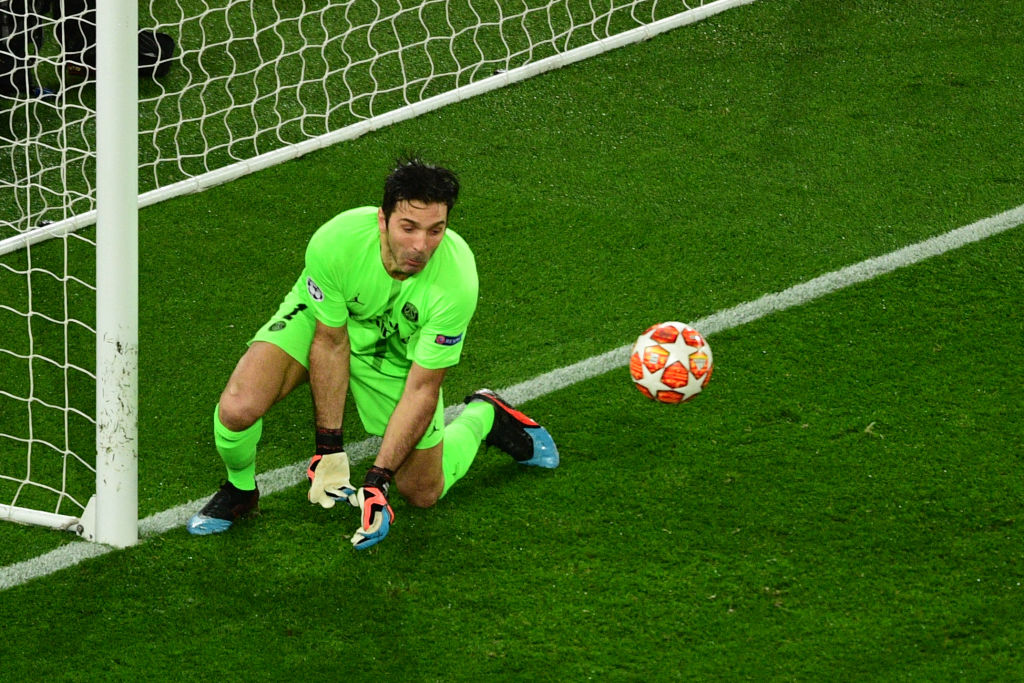
...And Neymar's transfer wasn't a lone bullet in the direction of European glory.
After landing the Brazilian in 2017, PSG began assembling the kind of squad that had European pedigree and the kind of mentality and leadership that you'd expect from Champions League champions. The move, from signing stars to signing leaders properly began in 2018 with 40-year-old Gianluigi Buffon, shipped in for free with the intention of bringing the kind of gravitas that PSG lacked. The veteran Italian was more than happy to lend himself to the project, given how a European medal had always evaded him.
It was just the start. Keylor Navas would join in 2019 after winning three Champions Leagues between Real Madrid's sticks, while Ander Herrera displayed the kind of influence at Manchester United that PSG wanted in their own midfield. They brought in Inter's captain Mauro Icardi and a promising backline leader in Abdou Diallo, too; then, of course, Gigio Donnarumma, Sergio Ramos, Georginio Wijnaldum and Lionel Messi all joined, to give that spine even more experience of winning the big prizes.
Buffon wasn't expected to win trophies on his own but his influence didn't deliver the big prize - and he never did get his Champions League medal at PSG. It'll be shocking if none of the stars that follow do, though.
10. Cristiano Ronaldo (Juventus)
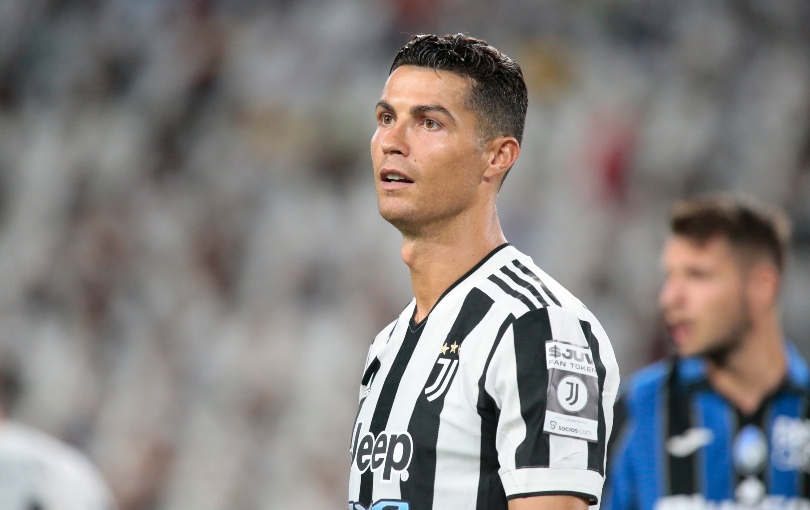
Where do you go when you're winning the title in your league every single year with such little competition... but you're seemingly cursed to never triumph in Europe ever again? Obviously, you sign the one player who can change all that.
Juventus have never been a team of superstars. AC Milan had the Dutch masters in the 90s, Inter had Vieri and Ronaldo up front, even Mourinho in the dugout: but Juve have never been ones to sign huge, attention-grabbing players in their bid for dominance. And in 2018, perhaps they figured that that's where they were going wrong.
Signing Cristiano Ronaldo was made with one thought in mind: Champions League glory. After watching him knock them out of the last two competitions - the first in the final in Cardiff - the Old Lady shelled out the money to buy themselves a game-changer: potentially a mentality-changer. And when he scored a hat-trick to drag them back from a two-goal deficit against Atletico in the knockouts in 2019, it looked like it may work.
With Ronaldo now no longer a Juve player, his Champions League record looks shoddy. A quarter-final defeat to a youthful Ajax, a last-16 defeat to a weak Lyon and another last-16 defeat to a weak Porto. Maybe Juventus really are cursed...
Subscribe to FourFourTwo today and get three issues delivered for just £3.
Restock your kit bag with the best deals for footballers on Amazon right now
ALSO READ
GUIDE Best football gifts: Present ideas for football fans
SAVE Best Football Manager 2022 deal: Save over 30% on FM22 pre-orders with this FourFourTwo code

Mark White is the Digital Content Editor at FourFourTwo. During his time on the brand, Mark has written three cover features on Mikel Arteta, Martin Odegaard and the Invincibles, and has written pieces on subjects ranging from Sir Bobby Robson’s time at Barcelona to the career of Robinho. An encyclopedia of football trivia and collector of shirts, he first joined the team back in 2020 as a staff writer.
 Join The Club
Join The Club










